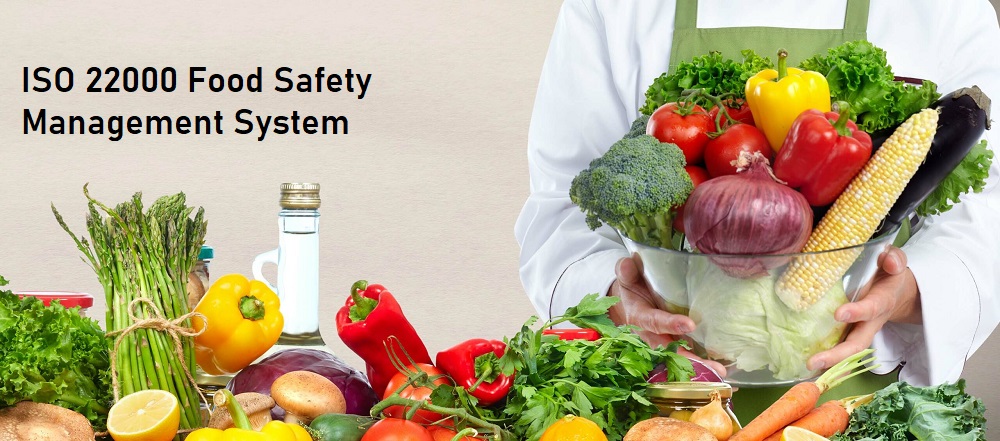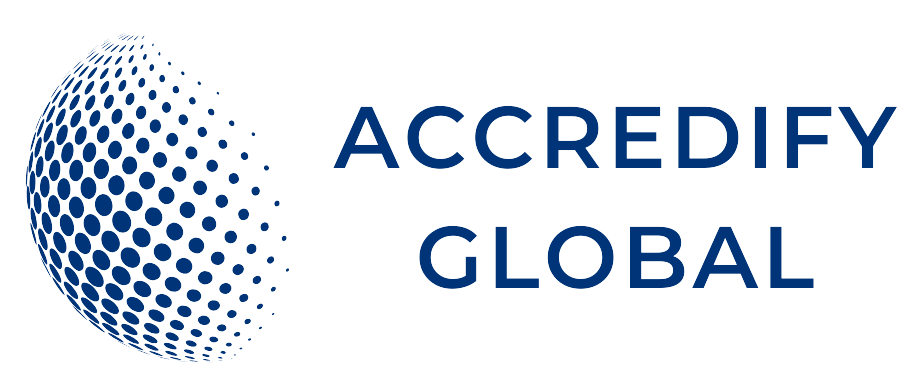ISO 22000:2018 Certification - Food Safety Management System (FSMS) |Accredify Global

Evolution of ISO 22000:2018 Certification
ISO 22000:2018 is the international standard for food safety management systems (FSMS). It was developed by the International Organization for Standardization (ISO) to provide a globally accepted framework for ensuring food safety. Since its publication, ISO 22000:2018 has become a critical standard for organizations in the food industry seeking to demonstrate their commitment to food safety and quality.
What is ISO 22000:2018 - Food Safety Management System?
ISO 22000:2018 – Food Safety Management Systems – FSMS is a Management Systems cerification for organisations involved in the production, processing, packaging and transport or distribution of food products. ISO 22000 is an international standard that specifies the requirements for Hazard Analysis Critical Control Point - HACCP food safety management systems in organisations involved in the production, processing, packaging and transport or distribution of food products. This type of certification is suited to businesses which require international recognition of their food safety management system. ISO 22000 integrates the principles of HACCP developed by the Codex, Alimentarius Commission and described in Hazard Analysis Critical Control Point - HACCP System and Guidelines for its Application, with prerequisite programs (PRPs), into an auditable management system standard. ISO 22000:2018 specifies requirements for a FSMS that combines generally recognized key elements to ensure food safety along the food chain, including:
- Interactive communication.
- System management.
- Prerequisite programs.
- HACCP principles.
Who Needs ISO 22000 Certification?
Any organization involved in the food supply chain, regardless of size or complexity, can benefit from ISO 22000 certification. This includes food manufacturers, processors, distributors, retailers, and service providers.
Importance of ISO 22000:2018 Certification
ISO 22000:2018 certification demonstrates an organization's commitment to food safety and quality. It helps reduce foodborne hazards, enhance compliance with regulatory requirements, and improve overall business performance. Certification can also boost stakeholder confidence and enhance the organization's reputation.
ISO 22000:2018 Food Safety Management System and Its Major Aspects in a Business
ISO 22000:2018 covers various aspects of food safety management, including:
- Hazard Analysis and Critical Control Points (HACCP): Identifying and controlling food safety hazards.
- Interactive Communication: Ensuring effective communication along the food chain.
- System Management: Integrating food safety management into the organization's overall management system.
- Prerequisite Programs (PRPs): Establishing basic conditions and activities necessary for food safety.
The Principles of ISO 22000 Certification
- Focus on Food Safety
- Analysis of Food Safety Hazards & Critical Control Points.
- Tracking & Monitoring of Food Supply Chain
- Business Leadership: Helping you and your business
- Information to People about Food Safety
- Process Approach
- System Approach to Management
- Continual Improvement in Food Safety Management
- Database Approach to Decision Making
- Mutually Beneficial Supplier Relationship
Checklist for ISO 45001:2018 Certification
- Conduct a gap analysis.
- Develop a food safety policy.
- Identify and assess food safety hazards.
- Establish food safety objectives and programs.
- Implement control measures.
- Train employees.
- Monitor and measure performance.
- Conduct internal audits.
- Review and improve the FSMS.
Is ISO 22000 Certification Mandatory or a Legal Requirement?
ISO 22000 certification is not mandatory but is highly recommended for organizations seeking to improve their food safety performance. It helps ensure compliance with regulatory requirements and demonstrates a commitment to food safety.
Services
Benefits of ISO 22000 Certification
- Reduced Foodborne Hazards: Reduces food safety incidents by up to 50%.
- Enhanced Compliance: Ensures adherence to regulatory requirements, reducing legal liabilities by 30%.
- Increased Customer Confidence: Demonstrates commitment to food safety, resulting in a 20% increase in customer trust.
- Improved Market Access: Certification opens up new market opportunities, increasing market share by 15%.
- Operational Efficiency: Streamlined processes lead to a 10% increase in operational efficiency.
- Cost Savings: Reduced recalls and waste, leading to a 25% reduction in associated costs.
Requirements of ISO 22000 Certification
To achieve ISO 45001 certification, businesses must::
- Food Safety Policy: A clear policy outlining the organization's commitment to food safety.
- Hazard Analysis and Critical Control Points (HACCP): Identifying and controlling food safety hazards.
- Objectives and Programs: Setting and achieving food safety goals.
- Training and Awareness: Educating employees on food safety practices.
- Monitoring and Measurement: Tracking food safety performance.
- Internal Audits: Regularly reviewing the FSMS.
- Management Review: Top management's involvement in reviewing and improving food safety performance.
Cost of ISO 27001 Certification
The cost of certification varies based on:
- Organization size and complexity.
- Industry sector and regulatory requirements.
- Certification body and audit fees.
- Effective internal audits and corrective actions.
PDCA Cycle | Accredify Global
- Plan – to think that what do we need to achieve in our organization
- Do – to execute a planned action which will help us achieve the required objective
- Check – monitor against the standards) (policies, objectives, requirements)
- Action – finally implementing what has been rechecked.
ISO CERTIFICATION. 3 STEPS. 30 DAYS. DONE !! | ACCREDIFY GLOBAL
Accredify Global, we follow a structured and transparent ISO certification process to help businesses achieve international compliance efficiently. Our streamlined approach ensures a hassle-free experience from initial consultation to final certification..
3. Audit Review & Certification
- Objective: Validate your management system through an external audit and achieve certification.
- Actions:
- Conduct an internal audit to ensure readiness for the certification audit, utilizing Accredify Global's auditing tools and resources.
- Schedule and undergo an external audit with Accredify Global's accredited certification body.
- Address any non-conformities identified during the audit with support from Accredify Global's consultants.
- Outcome: Successful certification and ongoing compliance with the ISO standard, with continuous support and guidance from Accredify Global.
Frequently Asked Questions (FAQs) about ISO 45001 Certification - Occupational Health and Safety Management Systems (OHSMS)
Question : What is ISO 22000:2018?
Answer: A: ISO 22000:2018 is an international standard for food safety management systems.
Question : Is ISO 22000 certification mandatory?
Answer: No, but it is highly recommended for improving food safety performance.
Question : How long does it take to get certified?
Answer : The certification process can take several months, depending on the organization's readiness.
Question : What are the benefits of ISO 22000 certification?
Answer: Benefits include reduced foodborne hazards, enhanced compliance, increased customer confidence, improved market access, operational efficiency, and cost savings.
Question : How does Accredify Global support ISO 22000 certification?
Answer: Accredify Global provides comprehensive support, including gap analysis, training, and auditing services. Our experienced team ensures a smooth certification process and ongoing compliance.
